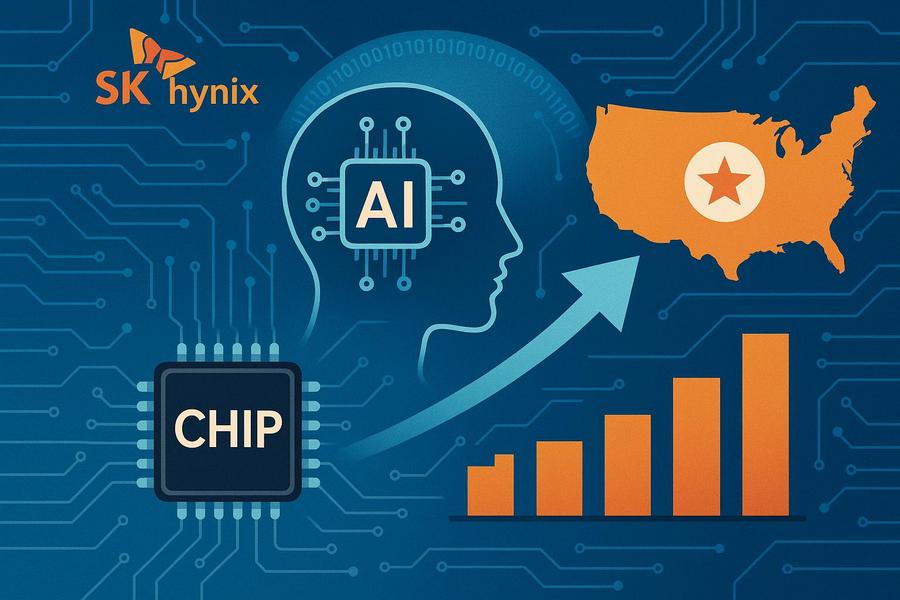SK Hynix has hit a remarkable milestone as U.S. sales skyrocket to over 70% of its Q1 2025 revenue, riding a wave of artificial intelligence demand that’s reshaping the memory chip landscape.
The South Korean memory giant reported U.S. revenues of 12.8 trillion Korean won (approximately $9.1 billion) in the first quarter, accounting for a dominant 72% of its total quarterly sales of 17.6 trillion won. This surge represents a 42% increase compared to the same period last year, highlighting the dramatic shift in the company’s customer base toward American tech firms.
AI Boom Drives Unprecedented Growth
What’s behind this remarkable geographic concentration? SK Hynix attributes the sales bounce to two key factors: soaring demand for AI systems and U.S. businesses stockpiling High Bandwidth Memory (HBM) supplies amid uncertainty over potential tariffs. The company noted that the memory market ramped up faster than anticipated due to orders for AI-capable systems coupled with what it describes as “inventory accumulation demand.”
The numbers tell a compelling story. SK Hynix’s revenue in the U.S. market surged 2.6 times in 2024, with American sales now contributing more than half of the company’s total annual revenue. This represents a significant realignment of the company’s business, which has traditionally been more evenly distributed across global markets.
“We expect HBM sales to grow more than 100% year-on-year in 2025, based on strong market demand,” a company spokesperson stated. “Our client base will further expand this year.”
HBM: The Silicon Powering AI Revolution
High Bandwidth Memory has become the critical component powering advanced AI systems, with SK Hynix positioning itself as a leading supplier. The memory maker forecasts its HBM sales to more than double in 2025 compared to 2024, with particularly strong growth in its cutting-edge 12-layer HBM3E products.
These next-generation memory chips are expected to favorably increase to over 50% of total HBM3E revenues by Q2 2025, cementing the company’s technological leadership position in the AI memory space.
Is this concentration of sales in a single market sustainable? Industry analysts have expressed both optimism about the growth trajectory and concerns about potential overreliance on U.S. customers. That said, the global race for AI dominance shows no signs of slowing, with memory requirements only expected to increase as models grow more complex.
For SK Hynix, the American AI boom has transformed from opportunity to lifeline, reshaping not just its sales geography but potentially its entire corporate strategy for years to come.


